
UTAR helps integrate TCM into mainstream healthcare
Traditional Chinese medicine (TCM), which was originated from the ancient times, has embodied the traditional culture, the wisdom of ancient, as well as the concept and experience of health over thousands of years. TCM is, by definition, traditional, but this in no way prevents its evolution. It is not only surviving—it is thriving. Great progress has been made since the past decade in efforts to understand the mechanisms of TCM.
TCM is very popular in Malaysia. The country’s close tie with China has encouraged the mutual exchange between the two, which contributed to the development of TCM. In 2004, the Ministry of Health of Malaysia officially established the Traditional and Complementary Medicine (T&CM) Division to look into the regulation of T&CM practices and practitioners. Several initiatives have been taken to ensure the professional development of traditional practitioners through education and training. TCM programmes are also offered by local colleges and universities. UTAR is one of the universities that has been approved by the Ministry of Education to offer TCM programme.
“TCM had developed rapidly in Malaysia after it was recognised by the government as a part of the healthcare system. It is a common practice in Malaysia, however some unqualified practitioners who tried to fish in troubled waters affected the public's trust in TCM,” said Judick Yap Wei Hoong.
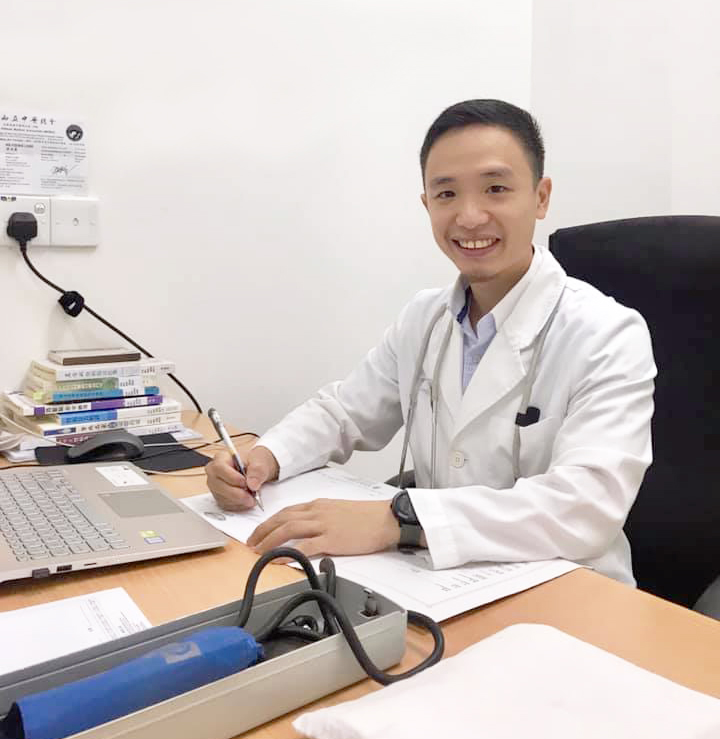
Judick Yap
Judick Yap is the Head of Clinical TCM Programme at UTAR Department of Chinese Medicine. He has been working at UTAR since 2015. With his ongoing commitment and dedication to students and learning, he was awarded Teaching Excellence award year 2018 in the year 2019.
According to him, some people still have negative stereotypes about TCM, but in fact, the Traditional and Complementary Medicine Act 2016 was enforced on 1 August 2016, which included TCM in its regulatory scope and clarified the legal status of T&CM practitioners. The Act could ensure the development of TCM while improving the qualification of practitioners more systematically.
“In the future, the Ministry of Health would uniformly issue Annual Practicing Certificate to qualified practitioners. Those who fail to register or obtain the practising certificate will not be allowed to provide TCM services,” he said.
He added, “Most practitioners in the past were not formally trained. Their knowledge was passed down from past generations. In light of this, the government has decided that experienced practitioners with sufficient training courses provided by the Ministry of Health will be qualified to obtain a practising certificate. However, in the future, practitioners who want to apply for a practising certificate must possess a Bachelor Degree in Chinese medicine, recognised by the Ministry of Higher Education.”
More than 100 TCM students have graduated from UTAR Department of Chinese Medicine, and their employment rate within six months is about 95 per cent and above. Judick Yap pointed out that the employment prospects of Chinese medicine have long differed from the past. The demand for TCM in Malaysia has gradually increased.
He also mentioned that UTAR TCM students are given the opportunity to enhance their clinical experience by providing free health screening and consultation to the public under the supervision of a TCM lecturer. Sharing his clinical experience, he said, “Chinese patients may be more familiar with TCM, but non-Chinese patients visit us for TCM treatment as well.”
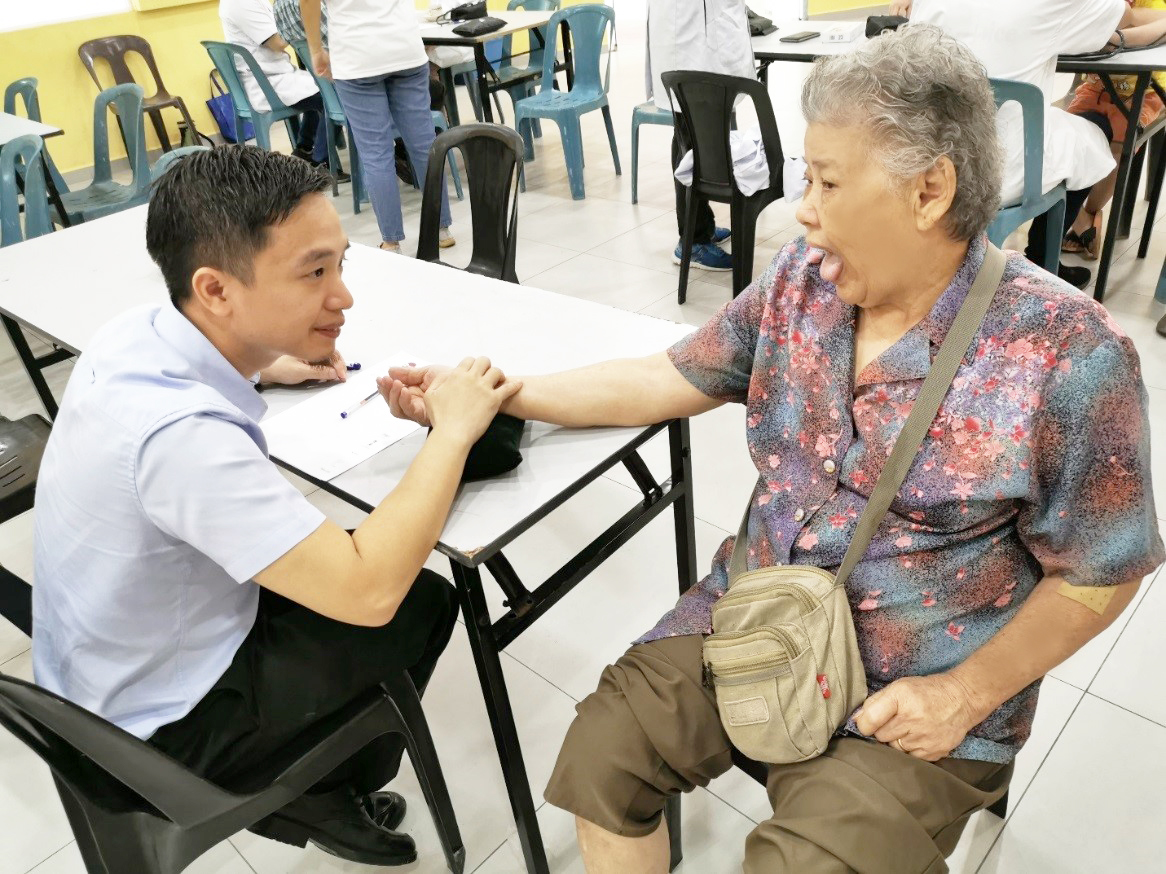
Judick Yap providing free consultation to a villager
Furthermore, Judick Yap explained that TCM diagnosis, which consists of four aspects—‘to see’, ‘to hear/smell’, ‘to ask’ and ‘to feel’ (望、闻、问、切), is generally used to discover the source of an unbalanced health condition. TCM practitioners may opt to use any of the large arrays of traditional remedies, namely acupuncture, cupping and tui-na. As a vital part of TCM, acupuncture has been practised to treat various diseases and currently has been recognised by the World Health Organization (WHO). It is a form of treatment that involves inserting very thin needles into specific points along the meridians, where the needles stimulate the meridians and readjust the flow of qi to balance the body’s yin (阴) and yang (阳).
According to Judick Yap, a TCM practitioner typically makes use of what is known as yin yang and five basic elements (五行) which include wood (木), fire (火), earth (土), metal (金), and water (水). He said, “A practitioner always seeks to restore a dynamic balance between two complementary forces, yin and yang. A person is healthy when harmony exists between these two forces; whereas illness results from a breakdown in the equilibrium of yin and yang. TCM emphasises on self-healing power to cure diseases and keep fit.”
He also explained, “Acupuncture has a bidirectional benign regulating effect, which means stimulating the same specific point has different treatment effects. An effective acupuncture treatment elicits where the ‘Deqi’ sensation involves suan (酸; aching or soreness), ma (麻; numbness or tingling), zhang (胀; fullness, distention or pressure), and zhong (重; heaviness). Sometimes, acupuncture is accompanied by scraping or cupping to enhance the effectiveness of the treatment.”
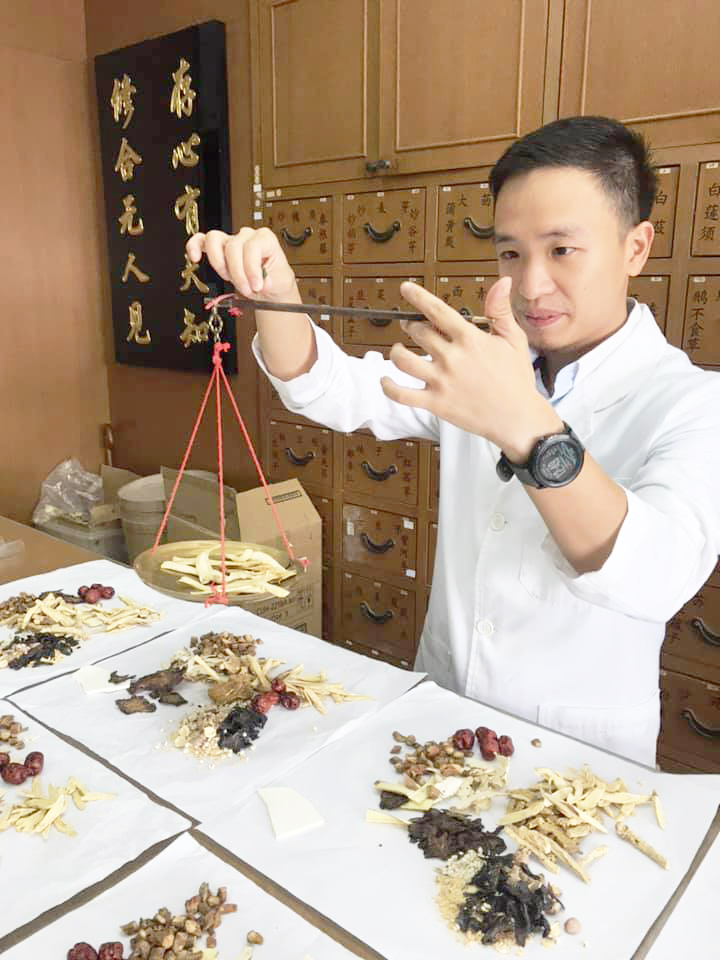
Judick Yap explained that emotions are intimately linked with physical health
Although TCM is old enough, it is not something out of date. It still has the power of getting rid of troubles in modern society such as stress and other negative emotions. However, Judick Yap said that TCM can help to alleviate these problems, but it still depends on people’s mental and physical cultivation practices. To enjoy a healthy life, a person needs to cultivate an optimistic attitude and healthy living habits.
Besides, Judick Yap explained that negative emotions can lead to illness. For example, overthinking and worrying damage pi (脾); excessive fear hurts shen (肾) and inappropriate anger ruins gan (肝). “Each emotion is associated with a particular organ in the body. Our emotions do indeed tend to influence our body condition. Thus, it is important for TCM practitioners to pay attention to the changes in the patient’s emotional state,” he said.
Moreover, Judick Yap pointed out that although TCM seems more acceptable to people nowadays, hard work still needed to be done to promote TCM so that more and more people could benefit from TCM. He also explained, in addition to leading UTAR TCM students to the villages for free consultations, the University also organises lectures and TCM-related activities annually to enhance people’s understanding of TCM.
Established in 2010, UTAR TCM programme was designed and accredited in accordance with international standards with the aim to produce Chinese Medicine practitioners who possess in-depth knowledge of Chinese Medicine's unique principles, diagnosis and treatment employing acupuncture, Chinese herbal medicine and other therapeutic approaches, as well as western medical sciences and diagnosis. The University has also recently embarked on the plan to set up a specialist training hospital which is located at its Kampar Campus in Perak and the hospital will provide a combination of conventional, traditional Chinese medicine and Ayurvedic treatments. Among the traditional Chinese medicine treatments are acupuncture, tui-na, internal medicine, gynaecology, paediatrics, dermatology, oncology, otolaryngology, rehabilitation and inpatient services.
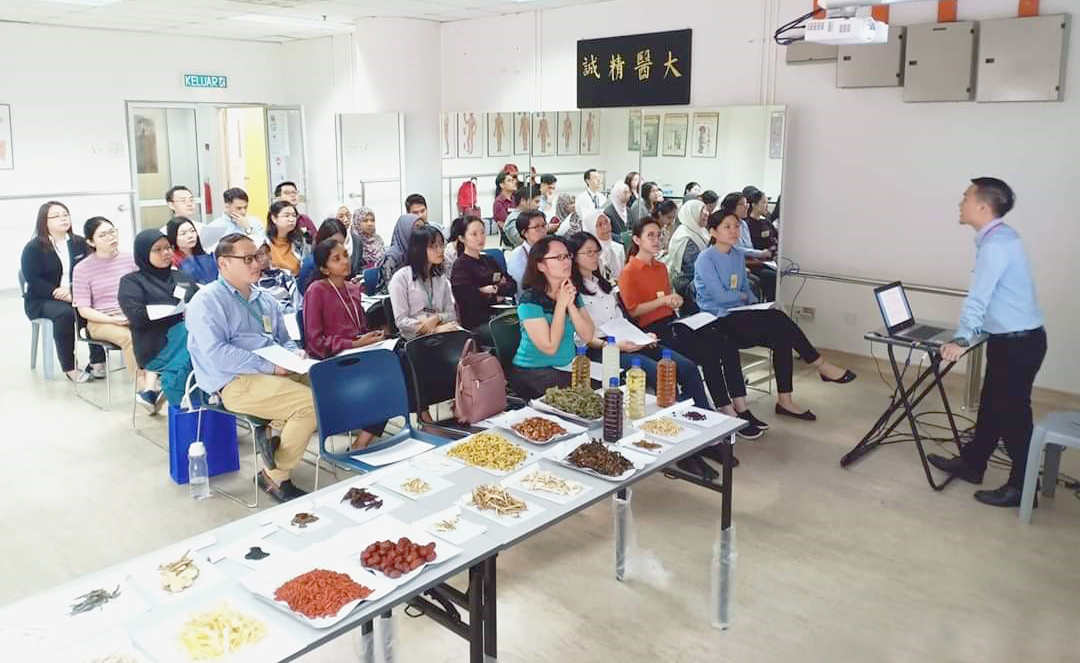
Judick Yap providing TCM lecture to pharmacists from various institutes under Ministry of Health Malaysia
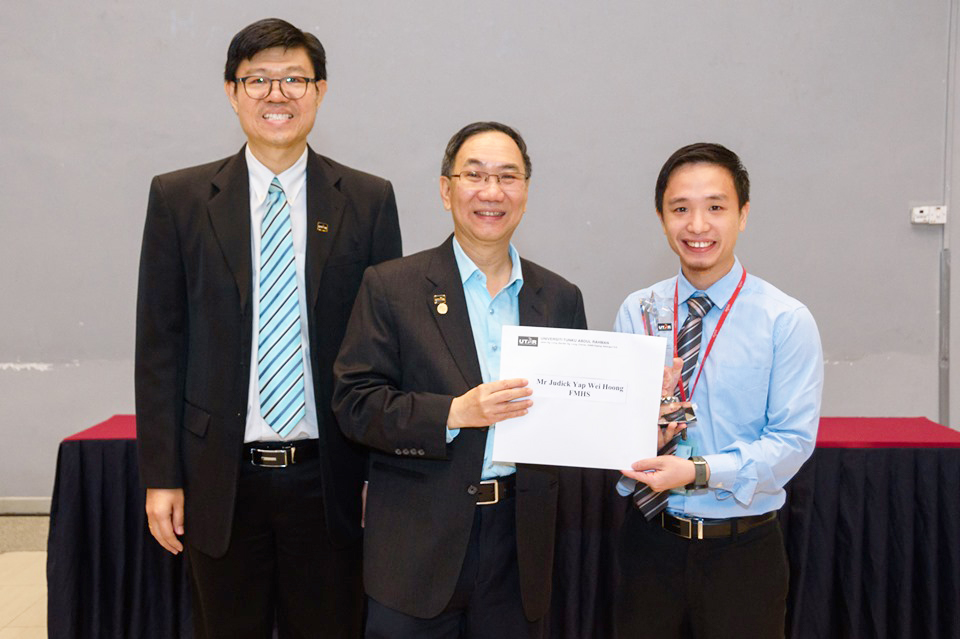
Judick Yap (left) receiving Teaching Excellence award year 2018 from former UTAR President Ir Academician Emeritus Prof Tan Sri Dato’ Dr Chuah Hean Teik (centre) in the presence of Vice President for Student Development and Alumni Relations Prof Dr Choong Chee Keong
© 2020 UNIVERSITI TUNKU ABDUL RAHMAN DU012(A).
Wholly owned by UTAR Education Foundation Co. No. 578227-M LEGAL STATEMENT TERM OF USAGE PRIVACY NOTICE